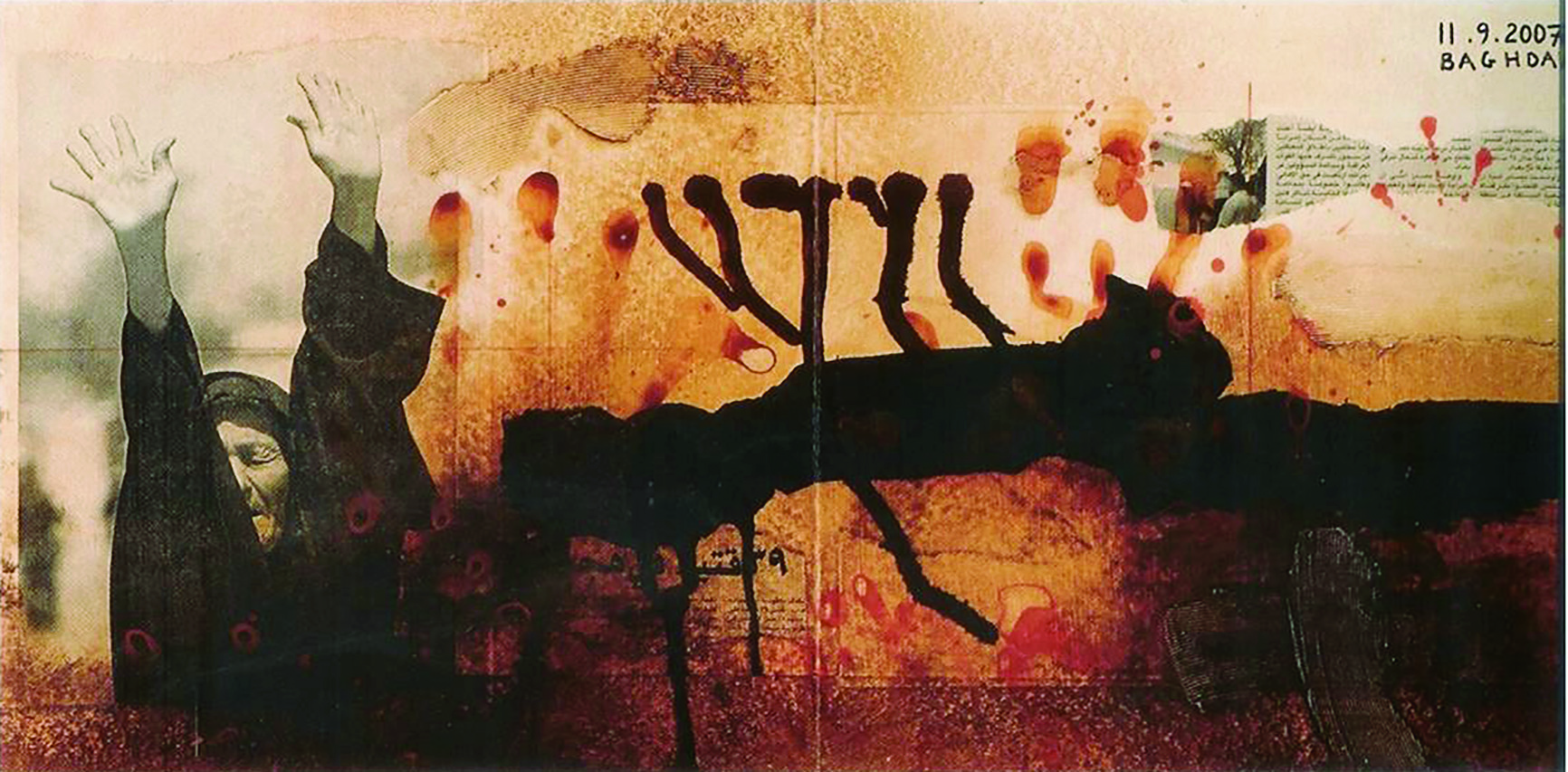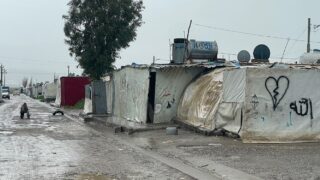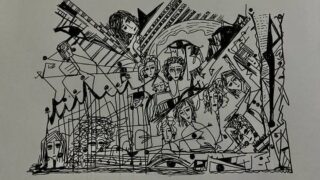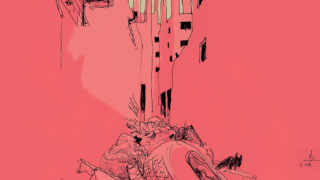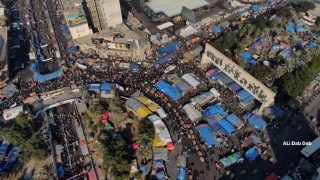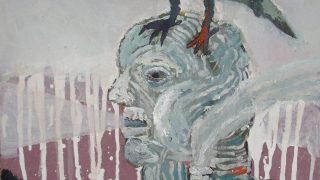In 2011, the Ministry of Planning released a report entitled “Maps of Deprivation in Iraq”; in it, the Iraqi population was divided into a different groups depending on their relationship to the money from the country’s oil wealth.
The report see the country’s population as fitting into four socioeconomic categories, but it does not delve into the circumstances and government policies which produced them. And while it does not clearly delineate the range of income earned by members of each group, the report says that it drew on the level of social services, access to infrastructure, and education in order to classify each social category.
Some months ago, a parliamentary deputy named Abu Rihab, who represents the city of Karbala and who happens to be the son-in-law of former prime minister Nouri al-Maliki, posted a picture on his Facebook page, showing himself and al-Maliki and two of the Iraqi construction tycoons who have taken over (with much help from al-Maliki and the Daawa Party) all of the government contracts (as well as all of the projects that exist only as imaginary procurements) related to the post-war reconstruction of the country.
Abu Rihab wrote a comment under the picture: “The gathering of the great.” The photograph is a perfect representation of the first category of Iraqis described in the ministry report: the 2 percent of all of the country’s 33 million people who are the “well-off,” who enjoy the best services available, who have access to electric power and hospitals, to good schools and even a decent urban environment.
At least that is how the report describes them. In reality, this category is basically made up of the Iraqi politicians who control the state’s levers of power, whether they occupy legislative, executive or judicial seats. Among them as well are the parasite businessmen hatched from relationships with the political parties that run the country, and as well the prominent religious leaders who constitute the third leg in the structure erected on the wealth of the country.
These last are the ones who endorsed the corruption, with their fatwas and sermons delivered only to cover up the fake projects-9,000 imaginary deals since 2006 in which 230 billion dollars was spent to create nothing at all. In the meantime only some 500 concrete and visible infrastructure project were actually built.
It should therefore surprise no one that Iraq has topped the list of the most corrupt countries in the world for five years running now, nor is it surprising that rates of illiteracy and poverty are rising to compete with the levels of the poorest countries of Africa.
Another category of the country’s population has emerged solely to build a social wall that protects and perpetuates the situation of the two percent. This second category of the population described in the report comprises twenty percent of the country, and they live an almost middle-class existence, with (uneven) access to services and a degree of prosperity. But it is not an independent grouping, existing as it does in a client-patron relationship with those who hold power.
The majority of the people in this category are either state employees or in the military. There are six million state employees who fit into this “serene” category of Iraqis who can collect their wages each month, most without having to actually give back in return any service or actual work at all. The average amount of time state employees spend doing effective work on a daily basis amounts to ten minutes, and this of course only includes those who bother to show up to their work posts. This category of people automatically gets to the front of the line for any services needed from the government, as well as bank loans and credits, thanks to their strategic position as a government jobholder.
The third category of Iraqis consists of the fifty percent of the population who are only getting by; day laborers, small time vendors, and people with businesses whose income essentially derives from the stable incomes of those in Category Two.
Despite their daily privations, and the terrible quality of public services they obtain, this category of Iraqis remains generally obedient to the power of the religious discourse that is broadcast to them by people in Category One. Members of Category Three are always on the verge of slipping into Category Four, the final group of Iraqis, composing some twenty-eight percent of the population who have been ground down entirely, living in extreme poverty, in areas with no access to public services at all; neither water nor sewer lines, nor even schools.
The utter hopelessness in which most Iraqis live-those in the bottom two categories-does not push them into conflict with those above them, in spite of the latter’s control over the country’s wealth. This is mainly due to the religious discourses which have become more and more prominent over the last decade and a half, fed and directed by leaders of both Muslim sects, Sunni and Shi’ite.
Religious sermons never hold the entire political system responsible for what is happening to the country. Religious discourse generally stops with pointing a finger at perhaps one government minister from the opposing sect, blaming him for the appalling rates of poverty, and at perhaps another for the appalling state of public services. There are a few ministries considered by all to be legitimate scapegoats; for example the ministry in charge of electric power is equally attacked by everyone, which seems to bother the minister in charge not a whit.
As happens every summer, this summer Iraqis demonstrated in every city to protest power outages. The response of the minister was to say, without the slightest trace of embarrassment, that there is a power crisis in Iraq because of the enormous number of people now using electric water heaters. This in the context of a heat wave in which temperatures were topping 120 degrees: an accompanying wave of sarcasm swept the country.
Over the past twelve years, Iraq has spent some 40 billion dollars on electricity projects; nevertheless there are power cuts for 12 hours a day, and at times there is no power at all for days at a time. The minister remains in office, while protesters flood the streets to express their anger, only to withdraw in haste when political parties deploy their militia troops.
And then religious leaders vent off the anger, pointing it in whichever direction they choose, usually by blaming the other sect; either those who have taken over and swallowed all of the country’s resources, or DAESH [the Islamic State], which is the cause of an incredible hemorrhage of wealth and energy. Meanwhile nothing seems to proliferate other than more mosques and Hussainiyas, in every neighborhood and village. Thus Iraqis are ceasing to be citizens, transformed into mere members of religious sects or combatant units.
The political parties that are in power today – Shi’ite and Kurdish- arrived at the top by use of the discourse of ‘victimhood’, but the maps of Iraqi misery clearly show that rates of poverty in Shi’ite Basra, also the chief reservoir of Iraq’s oil, are no different than the rates of poverty, or the deficiency of government services and dilapidation of infrastructure- in Diyali or in Kirkuk or in Babel or Mathna or Nineveh; likewise illiteracy, which has risen at an equal rate in all of Iraq.
Translated by: International Boulivard

